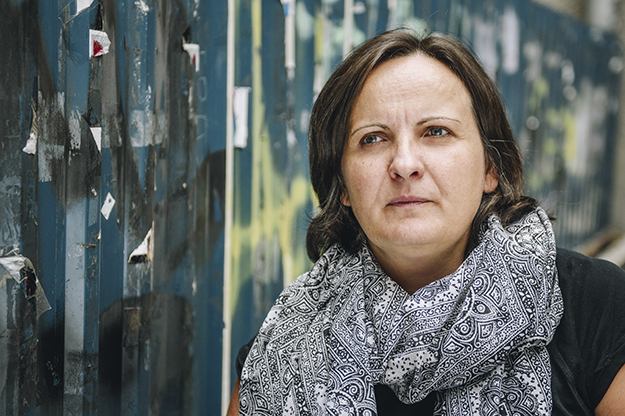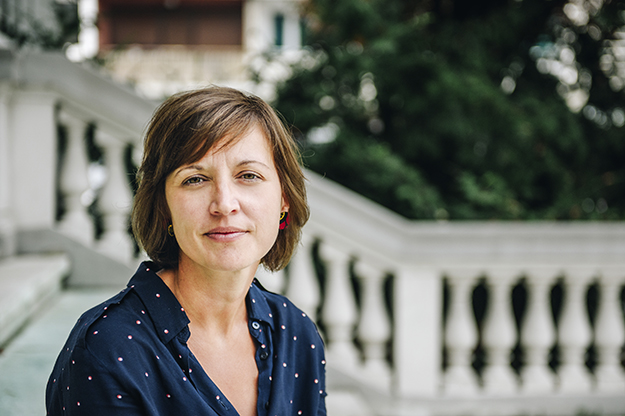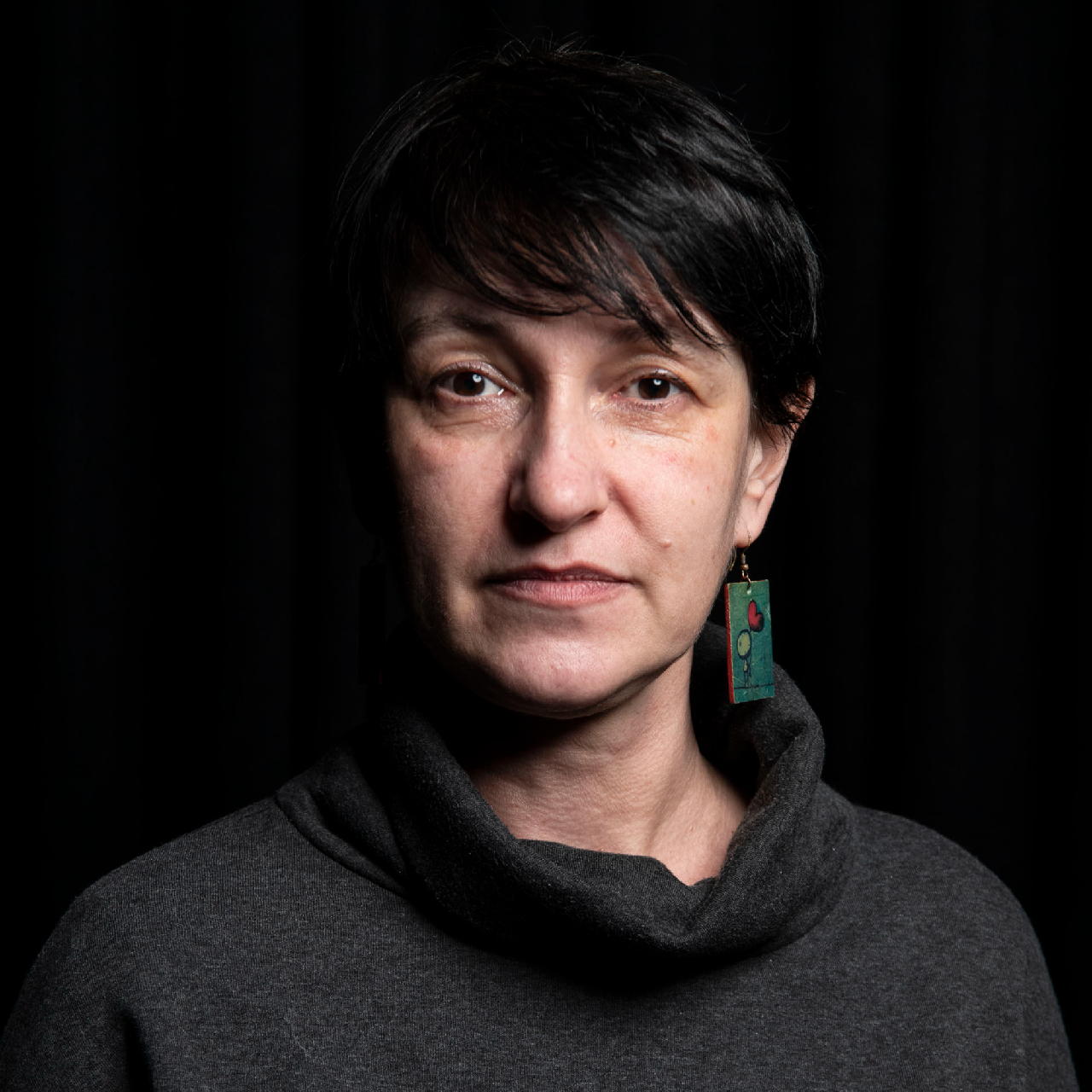At the end of August, the State Prosecution in Bosnia and Herzegovina (BiH) asked the country’s State Court to declare Vuk Ratković guilty. Ratković was a former member of the Army of Republika Srpska from Višegrad, and had been accused, among other things, of wartime rape.
The prosecution requested that the defendant pay 45,000 convertible marks (around 23,000 euros) to compensate the survivor. He was sentenced to eight years in prison for the rape of a women in Višegrad, and ordered to pay her compensation of 35,000 convertible marks (about 17,000 euros).
In BiH alone, since the end of the war more than 130 persons have been convicted of committing the war crime of rape. The state has held more war crime trials for charges of wartime rape than any other country in the world.
The victims were girls, teenagers, women, men… The rapes perpetrated on a mass scale, and conducted in private homes, apartments, and hotels and other locations that were turned into mass rape camps. The International Criminal Tribunal for the former Yugoslavia (ICTY) defined wartime rape as an act of torture, and sexual enslavement as a crime against humanity, which is considered an outstanding achievement in the fight against the impunity of war criminals.
“They are in the same place that they were in before the international community invested millions.”
Nela Porobić Isaković, WILPF
Survivors of rape in BiH started speaking about their ordeal immediately after the crimes were committed, in many cases after they had been freed from captivity. Years later, this crime has been the topic of movies and books, and international initiatives and projects have been launched directing funds toward both the non-governmental and governmental sectors throughout the region.
However, more than two decades after the wars in states which were part of what was once called Yugoslavia ended, women and men who suffered this type of torture are not only still fighting for their basic rights, but also against the stigma surrounding this crime. Activists in this field say that, despite everything that has been achieved so far, they are still not satisfied.
Nela Porobić Isaković, coordinator of the Women’s International League for Peace and Freedom (WILPF) in BiH, believes that, bearing in mind the funds invested into different projects, the campaigns and the court verdicts, survivors’ situations have barely improved. “Perhaps not worse, but they are in the same place that they were in before the international community invested millions,” she says.
Activists’ battle
It is hard to find the precise data on the number of people convicted of wartime rape in the countries emerging from the breakup of Yugoslavia, since trials have taken place in different courts, domestic, foreign and international. However, whatever the number, it is most certainly less than the actual number of perpetrators. Simultaneously, the number of those who underwent this type of torture is difficult to establish, and it is unlikely that it will ever be established in the future.
The UN estimates that some 60,000 persons were raped during the wars in Bosnia, Croatia and Kosovo. The largest number of victims were from Bosnia, where between 20,000 and 40,000 people were subjected to this war crime in the course of the four-year war, including in rape camps. One such notorious camp was Vilina Vlas, near Višegrad, where more than 200 women were tortured, raped, and murdered. Only five women survived this atrocity, and they have subsequently come forward as witnesses in different trials.
The engagement of women’s rights activists, including survivors, in BiH, has brought about the prosecution of more than 120 cases, and has also led to the proper implementation of judicial practices, whereby courts now take decisions relating to survivor compensation during the course of criminal trials, rather than requiring subsequent civil cases.
However, court trials are insufficient, activists say. Gorana Mlinarević, an international law expert from Sarajevo, claims that one of the problems across the region is that war crimes, injuries, and traumas “are something that the patriarchal regime doesn’t want to admit.”

International law expert Gorana Mlinarević says that while there is legal recognition of survivors in Bosnia and Herzegovina, there has been little societal progress in breaking the stigmatization. Photo: Imrana Kapetanović / K2.0.
“Acknowledgment would mean that decisions have to be made that would significantly change the status of women,” Mlinarević says. “Unfortunately, the point we have arrived at is the [legal] recognition of one group that suffered crimes, but we haven’t managed to sensitize society or to shake up the stubborn attitudes of the patriarchal regime.”
The struggle of Bosnian women has contributed to the UN adopting a set of resolutions and decisions that condemn wartime rape and call for the struggle against impunity and stigmatization. In 2012, the United Kingdom brought this topic back into international focus when it headed the Initiative for Conflict-related Sexual Violence Prevention, aimed at challenging harmful attitudes toward survivors and ensuring improved support mechanisms.
This led to a range of different projects being implemented throughout the world, however, Mlinarević says that “only small benefits have been felt by women who have survived sexual violence.”
When wartime rape was first included in an indictment for an international war crimes trial, and then successfully prosecuted — in the 1998 ICTY verdict (confirmed in 2002) in the Kunarac et al. case for war crimes committed in the area of Foča, southeastern Bosnia — it opened the door for future prosecutions. The next step for activists was the struggle for recognition of the status of survivors.
In Bosnia and Herzegovina, this struggle was led by associations that brought together survivors and NGOs, but also artists and activists. Film director Jasmina Žbanić timed the premiere of her movie “Grbavica,” which followed the life of a wartime rape survivor and won the coveted Golden Bear award at the 2006 Berlin International Film Festival, to coincide with the campaign.
The result was that, in 2006, the status of civilian victim of war was extended to include a special category of those who survived wartime rape. However, this status was only for those living within one of the two entities that constitute BiH — the Federation of Bosnia and Herzegovina. In the Brčko District — the independent administrative unit within BiH — this change was introduced in the law only in 2012, while in Republika Srpska — the second entity — the new law was only adopted in June this year.
The new law in Republika Srpska, which is still waiting to be implemented, recognizes survivors of wartime rape and provides for monthly compensation of about 300 convertible marks (about 150 euros). The problem, activists and civil society organizations warn, is that the status will be given only to those who are registered with local veterans’ or victims’ associations in Republika Srpska, meaning that if somebody is registered in the Federation, and is living in Republika Srpska, they will not be able to apply.
Despite the various legislation, only a small fraction of survivors in BiH have had their status recognized to date. Selma Korjenić, head of the Sarajevo office of TRIAL International, an organization that fights against impunity for war crimes throughout the world, says that only around 900 women have undergone the procedure of having their status acknowledged to date.
“It makes them a group that is forced to be identified for the rest of their lives with the war crime they suffered in order to exercise their vested rights.”
Gorana Mlinarević, international law expert
The huge discrepancy between the estimated number of survivors and the number of those with their status recognized is in large part due to survivors being put off applying by enduring stigmatization and the fact that crimes continue to be routinely denied despite verdicts and established facts. This is particularly the case for the few hundred male survivors in BiH, who remain invisible.
Many of these survivors in the Federation and the Brčko District now receive a monthly remuneration of 500 convertible marks (about 250 euros). However Korjenić says that this is not a full reparation, which the state is obliged to offer according to international law, because full reparations require other support and recognition rather than simply monetary payments.
Mlinarević explains that with the current approach, whereby survivors of war rape are treated as a special category eligible for monetary assistance, instead of the state providing comprehensive reparations for the injuries sustained in the war and enabling all survivors to integrate into post-war society, “it makes them a group that is forced to be identified for the rest of their lives with the war crime they suffered in order to exercise their vested rights.”
WILPF’s Porobić Isaković agrees that the only way to avoid deepening the existing hierarchy within the category of war victims is to secure a full range of reparations for all survivors equally. “Only with an equal solution can we take a look at the complexity of the post-war society, and not reduce this only to compensations but also look at the rest, including mental health,” she says.

Women’s International League for Peace and Freedom coordinator Nela Porobić Isaković says that monetary compensation alone does not meet the complex needs of survivors. Photo: Imrana Kapetanović / K2.0.
However, there is still a lot more to be done in BiH in order for the survivors to obtain even a small level of support in their lives. So far, the state has not invested efforts in building capacities that would offer adequate healthcare or social and psychological support to those who survived wartime rape.
Porobić Isaković says that more was done in the period with no donor funds — before the 2012 Initiative for Conflict-related Sexual Violence Prevention — when activists invested their efforts because they saw there was a need to solve certain issues. With the arrival of large amounts of money, the number of projects increased.
“And what happened then?” Porobić Isaković asks. “We had numerous workshops, we spoke to women about different issues, we explained laws, brought institutional representatives to our workshops, and spoke to them about rights provided by law, but still, when you go to some woman, she says she cannot exercise some of her basic rights.”
Criticism in Kosovo
A similar model to Bosnia and Herzegovina’s has been implemented in other countries in the region. The registration process for survivors of wartime sexual violence during the 1998-99 war in Kosovo opened in February this year. All those who obtain this status are entitled to a monthly social assistance payment of around 230 euros, as well as other benefits.
The law in Kosovo was adopted in March 2014 following a thorough civil society campaign, although it took nearly four years for the Verification Commission to start considering applications.
In the meantime, just like in BiH, it was largely NGOs and activists that kept the issue in the public eye, as well as Kosovo’s former President Atifete Jahjaga, an outspoken advocate of survivors’ rights.
In 2015, artist Alketa Xhafa-Mripa established the high profile installation ‘Thinking of You’ in Prishtina’s football stadium, in which hundreds of women’s dresses were hung on clothes lines in order to raise awareness of the struggle against the stigmatization of wartime sexual violence survivors.
“We should give them more time to gather the strength they need for the step of applying, not limit them within a symbolic period, just to say that we’ve done something.”
Ardiana Shala, activist
By June, 560 people had applied for this status; around 120 had been approved, although only half of them were receiving their social assistance payments, paid for from the state budget. Dozens of women had seen their applications rejected, many of which have been appealed by NGOs on behalf of survivors.
Since the law’s adoption, elements of it have come in for criticism from the civil sector, with critics particularly pointing out that the application process is overly complicated. Objections have been raised at the requirement to insert detailed information in the application process, including a description of the rape, the time and place it occurred, and information about any kind of help that the survivor has received. Also, survivors are asked to submit a confirmation letter from a doctor or a witness statement, as well as photos of the injuries if possible.
A limited window in which to apply for the status of wartime sexual violence survivor, set at five years, has also caused controversy. Activist Ardiana Shala warns that setting such a deadline will prevent many survivors from coming forward.
“Seeing that the victims were stigmatized and waited in silence for 20 years, and that this support now gives them new hope for having their pain recognized, I think we should give them more time to gather the strength they need for the step of applying, not limit them within a symbolic period, just to say that we’ve done something,” Shala wrote earlier this year.
Ignoring crimes and victims
When it comes to prosecuting cases of wartime sexual violence, three trials have been completed to date in Kosovo, each finalized with acquitals, while the ICTY has successfully prosecuted four individuals for wartime sexual assault in Kosovo. Meanwhile, in neighboring Serbia, until now only seven indictments have been filed for the crime of wartime rape. Four have resulted in successful prosecution.
The Humanitarian Law Center (HLC), which monitors war crimes trials, warns that on many occasions witnesses in trials against defendants accused of rape have been insulted and exposed to degrading behavior in the course of trials. Also, witnesses receive no psychological support, which is crucial.
Ivana Žanić, coordinator of HLC-Serbia’s legal team, says that they know of only 10 survivors — all from neighboring countries — covered by ongoing legal proceedings, while other cases are also in the hands of the Prosecution. “With the goal of prosecuting a larger number of wartime rape crimes, in January 2018, HLC submitted six criminal charges to the prosecution for the rape of six Roma women in Beli Manastir in the summer of 1993,” Žanić says. “However, until now we have received no information as to whether the Prosecution is working on these criminal charges.”
Žanić says that the Special War Crimes Chamber in Serbia has yet to award compensation to women who were raped in the war, adding that one person who is currently being supported by HLC in a wartime rape case is still waiting for the court to decide on a compensation request made in 2017.
“The achievement of reparations for persons who survived wartime sexual violence should be accompanied by efforts by the entire society to recognize the problem and to fight against stigmatization and secondary victimization."
Rosa Center for Women Victims of War
Meanwhile, in Croatia, the Law on the Rights of Victims of Sexual Violence during the Armed Aggression against the Republic of Croatia in the Homeland War was adopted in June 2015, establishing a legal status of sexual violence victim. The law provides those who have this status with a monthly remuneration of 2,500 kuna (around 330 euros), as well as the right to additional healthcare, medical rehabilitation, and psychological assistance. Unlike in Kosovo, there is no deadline for submitting requests.
The United Nations Development Programme (UNDP) estimates that there are around 2,000 survivors in Croatia. However, according to the Rosa Center for Women Victims of War, a Zagreb-based NGO that provides support to women who are victims of war and other violence, only 215 people had applied for the formal status by the middle of this year, and just 132 of them had been successful.
The Rosa Center is highly critical toward this law, as well as its implementation. Specifically, it claims that the number of reported and approved requests is negligibly small, with one of the reasons for this being the lack of a public discussion about the law itself, as well as about the status of survivors.
“The achievement of reparations for persons who survived wartime sexual violence should be accompanied by efforts by the entire society to recognize the problem and to fight against stigmatization and secondary victimization of persons who survived violence, and members of their families,” read a Rosa Center statement on the International Day for the Elimination of Sexual Violence in Conflicts, in June this year.
Compensation decisions in criminal courts
When it comes to fulfilling the rights of survivors of sexual violence, it is still Bosnia and Herzegovina that is widely held up as an example, despite all of its problems.
One of the biggest developments in BiH, some activists believe, is that since 2016 courts have started to make decisions on compensation due from defendants in the course of criminal proceedings. For years, if survivors wanted to demand compensation, they had to initiate civil lawsuits at the conclusion of the criminal case.
For initiating such a case, survivors had to hire lawyers, which was prohibitively expensive in most cases. However, the bigger issue is that in civil lawsuits there is no possibility of anonymity, and most people who testified before criminal courts about the crimes of wartime rape did so with their identities protected.
TRIAL International’s Korjenić says that the road to getting courts to implement the proper process was long and involved many civil society activities, and much work with judicial institutions and survivors.
The new system has been used in BiH in nine trials to date, seven before state level courts, and two in cantonal courts, with remuneration decisions amounting to between 10,000 and 30,000 convertible marks (about 5,000 to 15,000 euros).
Only two of these cases have reached a final verdict, although in one instance the defendant had no money to pay the injured party. “We are now looking for ways to coax the state to pay the injured party, and then to later collect the sum from the convicted individuals,” says Korjenić, pointing to the next step in the struggle. “There are international standards that indicate that in these kinds of cases states should be responsible for paying the injured party, and then to later find a way to be reimbursed by the convicted individuals.”

Selma Korjenić, the head of the Sarajevo office of TRIAL International, says that more needs to be done to ensure that survivors receive the compensation they are awarded in court cases. Photo: Imrana Kapetanović / K2.0.
In order for this to become a practice, TRIAL International advocates for the Prosecution to have insight into the property of the accused, and for the court to freeze the defendant’s property until the end of the process, which would allow for the payment of any damages found to have been inflicted. “We have already brought [this] case to the international level, before the UN Committee Against Torture, which can issue recommendations to the state on how to solve these issues,” Korjenić says.
TRIAL International representatives insist that the possibility of seeking compensation is fundamentally important as it helps to empower survivors. “In no case is this an issue of money, which isn’t that big either way, but it represents satisfaction and acknowledgement for the survivors,” Korjenić says.
Porobić Isaković says that successes and failures from BiH may serve as a lesson for other countries, especially Kosovo. “Bosnia and Herzegovina is like a pilot project that is very indicative of the process of achieving [survivor] status, fulfilling rights, and learning how to exercise them,” she says.
One of the most important lessons learnt from the Bosnian experience is that keeping quiet about a crime does not lead to the healing of those who have undergone torture, nor to the healing of society.
“We often hear from women who are talking not only so they can fight for their rights, because they are aware that it is too late for many of their rights, or that they will never exercise them,” Mlinarević says. Instead, she says many women are speaking up for the sake of other women in the world, and in the hope that what happened in the Balkans does not happen again on such a scale, “or at least so that adequate protection can be provided to women for whom the fulfillment of certain rights is possible and it isn’t too late.”
She adds that the Bosnian experience is a lesson that the issue of war crimes cannot be solved exclusively through courts, but that what has to be completed is the “post-war rehabilitation of society, which is, unfortunately, impossible, if the war-mongering and war-profiteering politicians are left in power.”
Korjenić agrees that a lack of political will for this process of post-war rehabilitation remains a problem for the entire region. “It seems that our system won’t allow the process of facing the past to flow on its own,” she says.
Porobić Isaković believes that there is still hope, and that some important steps have already been taken, including criminal trials, but points out that “many perpetrators are still walking free around us.”
The only way for survivors of wartime rape to find some peace is to see perpetrators in prison. And that is a process that will not be completed any time soon.K
Edited by Jack Butcher.
Feature image: Majlinda Hoxha / K2.0.

Back to monograph





